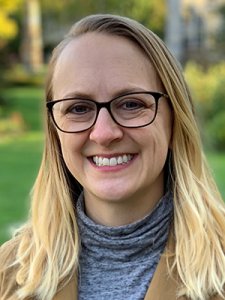What is your area of expertise and what is your research focus?
The psychology of how we communicate and process information from media sources
How did you end up in STEM?
No one has ever told me I was in STEM before, to be honest! But I love social science because it is applying the scientific method to answer questions about the human experience, including how we respond to issues facing health, science, and the environment. I was always interested in social studies, and used to be a journalist, and that led me to wonder more about how and why people reacted to the news in the ways they do, which eventually led me to study media psychology.
What hurdles or challenges (big or small) did you find as you pursued your career in STEM? What challenges do you face today?
Research is filled with rejection: journals rarely accept manuscripts and there are few jobs in higher education right now. So, the biggest hurdle is often getting a foot in the door and getting people to even consider your ideas. Then once you have the door opened, you have to keep persisting to convince them the idea is worthy and that the entire field should accept it. So, it is a lot of work and rejection and retooling of ideas and none of it happens in a linear fashion. And getting people to listen is often difficult for people at the margins of a profession, including in academia and STEM.
What or who was an inspiration or support for you?
I had a lot of really wonderful women professors when I was doing my undergraduate, master’s, and doctoral studies who inspired me to keep persevering in this field of study.
Why is it important for women to be in STEM and specifically your field?
Women are stereotypically thought of as “good communicators,” but often not listened to in research fields, so it is important to have women in the area of communication science to open up the field to the wide varieties of ways in which people might communicate and the effects that it might have on a wide variety of audiences.
What can be done to recruit more women into STEM?
To recruit more women into STEM fields, society needs to shift its entire orientation toward women and structural barriers need to be removed at all levels of society. My daughter is a little under two years old and she asked me to show her a picture of a farmer on my phone. I showed her a picture of a woman farmer and she insisted that was not a farmer and I realized all the videos and books of Old MacDonald showed her a white man as a farmer, so it starts from improving even the earliest mediated representations of who can be in what careers.
What advice would you give to girls and young women going into STEM?
I would give them the advice to ask questions and make themselves heard, be prepared for backlash when you do that, and seek out women mentors.

